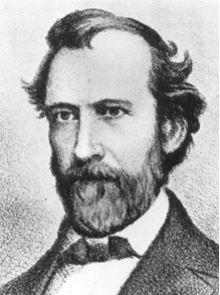Alexander Cummings
- Territorial Governor of Colorado from 1865-1867
- Party: Republican
View a description of holdings held at the Archives
Biography
Alexander Cummings, the third governor of the Territory of Colorado from 1865-1867, was born in Williamsport, Pennsylvania on November 17, 1810. Cummings spent his early life preparing for newspaper work, and was quite successful as the founder of both the Philadelphia Evening Bulletin and the New York World.
Political Influence
With the advent of the Civil War, Cummings used his political influence to be appointed as the War Department\'s special purchasing agent. Cummings took advantage of his $2,000,000 budget, and after a congressional investigation was discharged for his apparent ineptitude and profiteering. Soon after leaving the War Department, Cummings recruited the Nineteenth Regiment of Pennsylvania Volunteers. In February 1864 Cummings was made Superintendent of Troops of African Descent for the State of Arkansas, and for his efforts he was brevetted the rank of Brigadier General by President Johnson. The same president soon appointed him as the Territorial Governor of Colorado on October 17, 1865.
Anti-Statehood
Cummings began his position under difficult circumstances since the majority of the Territory's populace did not support John Evans' removal as Territorial Governor. Cummings was not in favor of statehood and tried to garner support and positive publicity by taking an extended trip through the mining region before convening the Territorial Legislature. While Cummings was away, however, those desirous of statehood met in Golden in order to elect a legislature, governor, and frame a constitution. A bitter controversy ensued, in which Governor Cummings publicly opposed the legislature set up by the statehood advocates in favor of the Territorial Legislature. Colorado citizens were forced to take sides for or against statehood, or put another way, for or against the legitimacy of Cummings' authority. In any event, Andrew Johnson vetoed Colorado's admission into the Union because the "state" constitution only allowed white males over twenty-one years of age the right to vote.
Another controversy surrounding the Cummings Administration concerned the Territorial Seal. Territorial Secretary Samuel Elbert and former Governor John Evans angrily argued over possession of the Seal. Cummings believed that neither man should have it. Rather it should be the current Governor's honor to hold the Seal. While this issue should have easily been dismissed, it snowballed to become one of the more divisive issues during this period.
1866 Congressional Campaign
Cummings' term continued to be full of contention. The election returns during the 1866 Congressional campaign between A.C. Hunt and George Chilcott appeared to have been illegally counted in Chilcott's favor. The Territorial Canvassing Board reported that the pro-statehood Chilcott had won the election, while Cummings declared anti-statehood Hunt the victor. The matter was taken to the House Committee on Elections in Washington, and Chilcott was sworn in as a "sitting delegate." Hunt\'s role in this congressional controversy ended with his appointment as Cummings' successor on April 24, 1867.
Cummings left his stormy territorial post to become the collector of internal revenue for the Fourth District of Pennsylvania, and was later unsuccessfully nominated for the position of Commissioner of Internal Revenue. Soon after he became the U.S. Consul to Hawaii, and died while performing consular activities in Ottawa, Canada, in June of 1879.
To Request a Record
To search our records, please see Archives Search.
To request a record from the Archives, please submit a formal request.
- See also our associated fees
